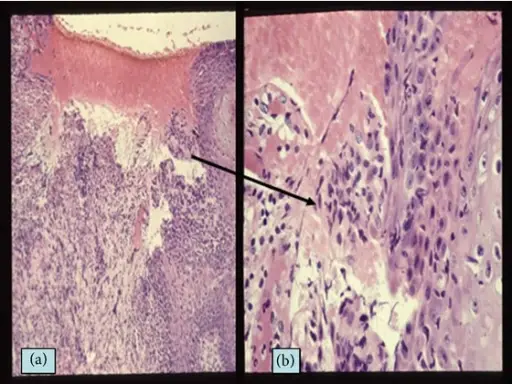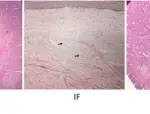Aphthous ulcers are small, shallow lesions that develop on the soft tissues in your mouth or at the base of your gums.
What is the Pathology of Aphthous Ulcer?
The pathology of aphthous ulcer is:
-Etiology: The cause of aphthous ulcer is stress.
-Pathogenesis: The sequence of events that lead to aphthous ulcer varies based on underlying medical conditions and environmental exposures. Predisposing factors implicated so far in the development of aphthous ulcers are: trauma, smoking cessation, stress, hormonal disorders, and food hypersensitivities
-Morphology: The morphology associated with shows the ulcers (aphthae, canker sores, or mouth sores) are normally shallow and begin as pale yellow in color, generally turning grey as the condition develops. They may be ringed with red or appear fully red when inflamed.
How does an Aphthous Ulcer Present?
Patients with aphthous typically affect males and females present at the age range of 25 and above. The symptoms, features, and clinical findings associated with aphthous ulcer include
small sores in the mouth that are round or oval, white, grey, or pale yellow with a red edge or border. A painful sore or sores that appear alone or in clusters inside your mouth.
How is Aphthous Ulcer Diagnosed?
Aphthous ulcer is diagnosed based on the history and clinical presentation. In patients with severe recurrent aphthous ulcers or canker sores, the clinical picture should guide laboratory testing.
How is Aphthous Ulcer Treated?
Aphthous ulcer is treated by the use of an antiseptic mouthwash e.g. containing chlorhexidine. In rare cases, a doctor may prescribe topical or oral antibiotics, such as tetracycline or minocycline.
What is the Prognosis of Aphthous Ulcer?
The prognosis of an aphthous ulcer is usually good. Minor aphthous ulcers are usually self-limiting, with the usual duration being about 10-14 days without any active treatment. Major aphthous ulcers can last up to about a month.



